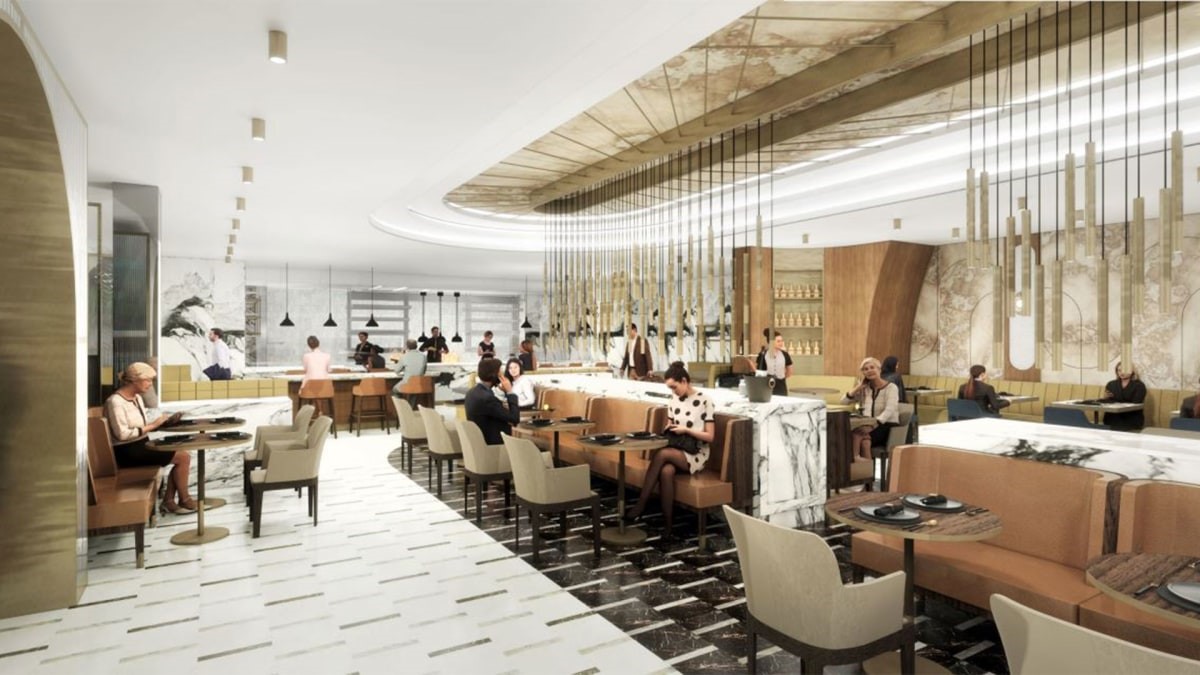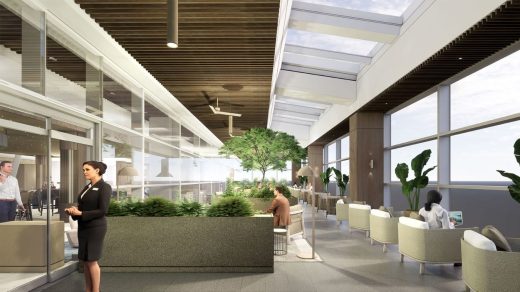Delta unveils ‘premium’ lounges months after it made it harder to get into its existing ones
By Chris Morris
Delta Air Lines is leaning into luxury. The Atlanta-based carrier has announced plans to open a series of “premium” airport lounges for passengers later this year in New York’s John F. Kennedy International Airport, Los Angeles, and Boston.
The move follows a controversial decision last September by the airline to change its access policies to existing lounges, barring passengers in basic economy and no longer letting holders of American Express’s Delta SkyMiles Platinum card purchase a one-day pass. (Delta SkyMiles Reserve and Delta SkyMiles Reserve Business American Express Card will receive a limited number of visits, a change the airline made after the initial outcry.)

JFK will see the first premium lounge this June. The facility will span 38,000 square feet and feature a full-service brasserie and a casual, chef-assisted market with open kitchens, dedicated “wellness areas,” and more. The Los Angeles and Boston clubs are scheduled to open in the fourth quarter of this year.
For now, Delta’s not saying what conditions passengers will need to meet to access the new clubs. But officials made it clear this will be a premium experience.
“We want each of our guests to receive a highly personalized and dedicated level of service,” said Claude Roussel, Delta’s vice president, Sky Club and Lounge Experience, in a statement. “It’s not enough to have beautiful spaces and exceptional offerings. Premium lounge customers should feel welcomed and known when they walk in the door, just as they would at their favorite hotel or restaurant.”
Delta has been focusing more and more on its first class and business passengers, as that sector contributes heavily to the company’s bottom line. Revenue from business class or premium economy tickets grew 26% last year, with $19.1 billion in sales. Main cabin ticket sales were up 20% to $24.5 billion.
Despite that, the decision to restrict access to the Sky Club lounges did not sit well with frequent fliers last year. It also appeared to draw the attention of the government, as the U.S. Transportation Department opened an investigation into frequent-flier programs of major carriers to look for potential deceptive or unfair practices. And the introduction of new lounges that will likely have even stricter admission policies has revived some of that frustration. Passengers, naturally, took to social media to grumble about the issue.
Beyond the premium new clubs, Delta also plans to open new standard Sky Clubs in Charlotte, North Carolina, and a second lounge in Seattle, Washington, this year. And clubs in Miami and New York’s LaGuardia will be expanded.
Airport lounges are havens for travelers who have long layovers or who arrive at the airport several hours before their flight. (It’s also a good place for airlines to encourage signups for their loyalty cards. Last year, Delta saw $7 billion in credit card-related revenue.) Wider, more comfortable seats as well as complementary food and drinks (including alcoholic beverages) make the time go faster and reduce the stress of the increasingly large crowds found at airports these days.
Delta’s clubs, in particular, have seen long lines as people try to get in, which prompted the airline to make changes last year. (The carrier, at the time, also said it hoped to simplify the rules for elite status qualification.)
“Visit growth has outpaced capacity,” the company said in its initial announcement of the news. “These changes will help preserve the premium experience that Delta customers love and expect.”
Protests to the initial announcement were so strong, however, that Delta was forced to revise its plans and issue an apology—and perhaps a hint at Friday’s announcement.
“We had too many changes rolled out at the same time,” CEO Ed Bastian said in an October 12 earnings call. “[Still,] most everyone agrees that something has to be done. Because everyone sees that the [number of premium] customers that we continue to build are in excess of the premium assets that we have to offer.”
(15)



